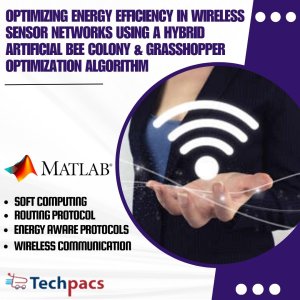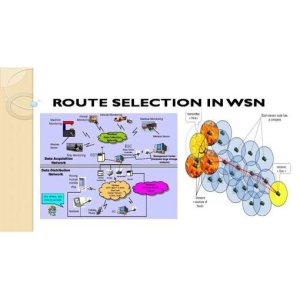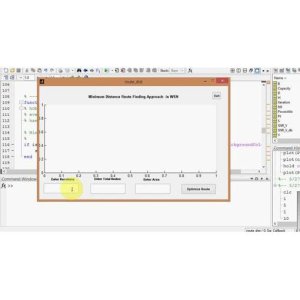Maximizing Efficiency in Cloud Task Scheduling: Hybrid Optimization Approach with YSGA and PSO.
Problem Definition
From the literature review conducted, it is evident that existing task scheduling models in cloud computing have limitations in terms of the parameters considered for efficient task scheduling. Authors have primarily focused on a few key parameters, neglecting several other important factors that could potentially enhance system efficiency. Furthermore, the optimization algorithms utilized in these models have demonstrated issues such as slow convergence rates and susceptibility to local minima, leading to suboptimal scheduling outcomes. Despite the efforts of various scholars in proposing different approaches, very few have explored the use of hybrid optimization algorithms, which could potentially offer a more robust and effective solution.
The identified pain points in the current task scheduling models within cloud computing call for the development of a new and improved approach that addresses these limitations.
By incorporating a wider range of parameters, leveraging hybrid optimization algorithms, and ensuring faster convergence rates to avoid local minima, a more efficient and effective task scheduling model can be devised. This project aims to fill the existing gap in the literature by proposing a novel task scheduling approach that overcomes the drawbacks of current models, ultimately enhancing the overall performance of cloud computing systems.
Objective
The objective of this project is to develop a novel task scheduling approach in cloud computing that addresses the limitations of existing models. By incorporating a wider range of parameters, leveraging hybrid optimization algorithms (Yellow Saddle Goat Fish Algorithm and Particle Swarm Optimization), and improving convergence rates to avoid local minima, the aim is to enhance the overall performance of cloud computing systems. The proposed work focuses on optimizing task scheduling by considering parameters such as cost time, average completion time, make span time, energy consumption, resource utilization, and load handling, which are grouped into three fitness factors for effective load scheduling. The ultimate goal is to increase the efficiency and effectiveness of task scheduling in cloud computing systems.
Proposed Work
In this work, a revolutionary and effective task scheduling model based on hybrid optimization techniques is developed to overcome the constraints of previous approaches. The main motive of proposed work is to schedule and optimize the tasks in cloud computing effectively so that overall performance of the model is increased. To accomplish this objective, we have updated two important phases i.e. implementation of hybrid optimization algorithm and fitness value upgradation during task scheduling.
In the proposed work, we have used new optimization algorithm i.e. Yellow Saddle Goat Fish Algorithm (YSGA) along with Particle Swarm Optimization (PSO) algorithm. The main reason for using the given two optimization algorithms is that they have high convergence rate and don’t get trapped in local minima while searching for global solutions. Another reason for using the two algorithms i.
e. YSGA and PSO together is to increase the efficiency of task scheduling by overcoming the limitations of each other. In addition to this, we have updated the performance of the proposed model by updating the fitness value. After analyzing the literature survey, we have analyzed that it is important to consider all important parameters in the proposed work in order to achieve high-level performance. In the proposed work, we have considered cost time, average completion time, make span time, energy consumption, resource utilization, and load handling as six parameters that are analyzed for calculating the fitness value.
The six fitness values are then grouped into three fitness factors i.e. ACET (Average completion and execution time including Make span and execution time), Ec (Energy Consumption) and Ru,LRHR (Resource utilization, Load resource handling ratio including load and VM capacity combined) in order to analyze the weights for each parameter for effective load scheduling. For every iteration, the best fitness value is stored and at the end, the least value of fitness will be selected as final and all the tasks will be scheduled based on this fitness.
Application Area for Industry
This project can be applied in various industrial sectors such as IT, finance, healthcare, manufacturing, and telecommunications where cloud computing models are used for efficient task scheduling. The proposed solutions in this project address specific challenges faced by industries, such as limited consideration of parameters in existing task scheduling models, slow convergence rates of optimization algorithms, and the need for hybrid optimization techniques. By implementing the task scheduling model based on hybrid optimization techniques, industries can achieve increased efficiency and effectiveness in cloud computing tasks. The use of Yellow Saddle Goat Fish Algorithm (YSGA) along with Particle Swarm Optimization (PSO) algorithm ensures high convergence rates and avoids getting trapped in local minima, leading to improved task scheduling performance. Additionally, considering parameters like cost time, energy consumption, resource utilization, and load handling in the fitness value calculation enhances the overall performance of the model and helps in achieving optimized task scheduling outcomes across different industrial domains.
Application Area for Academics
The proposed project can significantly enrich academic research, education, and training by introducing a novel task scheduling model based on hybrid optimization techniques for cloud computing. This research contributes to the academic field by addressing the limitations of existing task scheduling models and incorporating new optimization algorithms such as Yellow Saddle Goat Fish Algorithm (YSGA) and Particle Swarm Optimization (PSO) for enhanced performance.
In terms of education and training, this project provides a valuable learning opportunity for students and researchers in the field of cloud computing. By studying the implementation of hybrid optimization algorithms and the importance of considering multiple parameters for task scheduling, students can gain practical insights into optimizing cloud computing systems.
Furthermore, the relevance and potential applications of this project extend to pursuing innovative research methods, simulations, and data analysis within educational settings.
The use of YSGA and PSO algorithms, along with the evaluation of fitness factors such as average completion time, energy consumption, and resource utilization, opens up possibilities for conducting advanced research in cloud computing optimization.
The code and literature produced through this project can serve as a valuable resource for field-specific researchers, MTech students, and PhD scholars looking to explore hybrid optimization techniques in cloud computing. By leveraging the findings and methodologies presented in this research, individuals can enhance their own work, develop new models, and contribute to the advancement of cloud computing technologies.
In conclusion, the proposed project holds significant promise in enriching academic research, education, and training within the field of cloud computing. Its innovative approach to task scheduling, use of hybrid optimization algorithms, and emphasis on multiple parameters for optimization make it a valuable asset for researchers and students seeking to explore cutting-edge technologies in cloud computing.
Reference future scope: The future scope of this project includes expanding the optimization models to incorporate additional parameters, exploring the application of other hybrid optimization algorithms, and conducting empirical studies to validate the performance of the proposed task scheduling model in real-world cloud computing environments. Additionally, further research could focus on extending the application of YSGA and PSO algorithms to other domains within the field of computing for enhanced optimization and efficiency.
Algorithms Used
In this work, a task scheduling model based on hybrid optimization techniques has been developed to optimize tasks in cloud computing. The Yellow Saddle Goat Fish Algorithm (YSGA) and Particle Swarm Optimization (PSO) algorithms are used together to increase efficiency and overcome each other's limitations. The fitness value is updated during task scheduling to improve performance, with parameters such as cost time, completion time, energy consumption, resource utilization, and load handling considered for calculating the fitness value. The fitness values are grouped into three factors for effective load scheduling, and the best fitness value is stored for each iteration to select the final optimal scheduling solution.
Keywords
task scheduling, cloud computing, YSGA-PSO, optimization, resource allocation, load balancing, task assignment, cloud infrastructure, virtual machines, performance improvement, energy efficiency, metaheuristic algorithms, evolutionary algorithms, swarm intelligence, Particle Swarm Optimization (PSO), Genetic Algorithm, solution space, heuristics, artificial intelligence
SEO Tags
task scheduling, cloud computing, hybrid optimization techniques, Yellow Saddle Goat Fish Algorithm, YSGA, particle Swarm Optimization, PSO, task optimization, performance improvement, resource allocation, load balancing, cloud infrastructure, virtual machines, energy efficiency, metaheuristic algorithms, evolutionary algorithms, swarm intelligence, genetic algorithm, solution space, heuristics, artificial intelligence, research scholar, PHD, MTech, task assignment
| Shipping Cost |
|
No reviews found!


















































No comments found for this product. Be the first to comment!